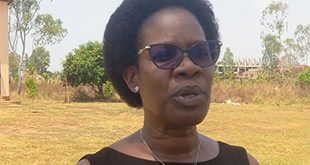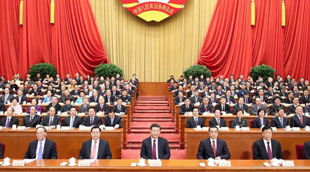
By Flavia Nassaka
Unexpected reasons why Judith Babirye, Nabakooba, and Prof. Nuwagaba want the unwanted job of MP
With her enchanting voice, magnetic smile, and an expanding charity foundation, Uganda’s top gospel music singer, Judith Babirye, is living her dream of diva success. That is why some people find her choice of next career switch intriguing. She wants to become a member of parliament. Most pundits say Babirye who is banking on her star power to win. But she is also waving lofty ambitions for her new calling. “I have been a political person,” she told The Independent in a recent interview, “I was raised by a political family, I love people naturally, and will serve the people of Buikwe.

I have my foundation and if I can raise money for all these causes, why can’t I do that for the people of Bukwe.”
She has a point. Her shows attract the Who-is-Who in politics, business, and society. They are attended by members of Uganda’s first family, often including the First Lady, Janet Museveni. This September she is once again staging her star-studded Gospel Explosion Concert at the Troxy Arena in London.
But, because she has such an illustrious career outside politics, the frenzy with which she is plotting for electoral office has led to several questions. Why now? And, if she wins, some are asking, will she in fact make a better politician than the incumbent? Being an MP is one of the most excoriated jobs in Uganda. Many MPs rarely bother to attend parliamentary business. But it is President Museveni who sparked most criticism of MPs when he said unproductive MPs are entitled to be in the House and “sleep” as long as the vote wisely, which is a euphemism for uncritically backing NRM party positions. It became a fixture for newspapers to run spreads of sleeping MPs at every public functions.
In May a top polling firm, Research World International, published a report in which parliament got an approval rating of only 41%. Most respondents were ambivalent at 21% but 59% disapproved. But the disaffection appears to be mutual, with several MPs speaking out against over-demanding voters.
In a revealing moment reported by The Monitor newspaper, the outspoken minister of Justice for Justice and Constitutional Affairs, Kahinda Otafiire, spoke publicly against voters pestering him for money. “Every time I go to my constituency, I find about 20-30 people in my compound asking for financial support. Some want you to pay school fees for their children as if you were there when they were producing the children. We must end this culture of begging,” he said.
The quitters and the hopeful
About 30 MPs have said they are quitting their jobs in 2016. These include Nakaseke District Woman MP Rose Namayanja, who is also the minister for Information, Edward Baliddawa Kafuufu (MP Kigulu North), and Maria Mutagamba, the minister for Tourism (Woman MP Rakai). Others are Hussein Kyanjo of Makindye West and Mathias Kasamba Kakuuto and Issah Kikungwe of Kyandondo South. Some, like former minister of state for Water, Betty Bigombe, have got better jobs. But others might have gauged their chances at the polls and decided not to risk it. The Uganda parliament has a high attrition rate, with up to 60% of incumbents not winning re-election. Hussein Kyanjo, once a vocal opposition MP before being disrupted by health problems told the Independent that it had always been his plan to be in parliament for two terms saying that he doesn’t support leaders who stay long in power.
“It’s good to give way to fresh minds with fresh ideas,” he says.
But Tim Lwanga MP Kalangala (Kyamuswa) says that being in parliament for long is not an issue. It is what one does while there is that matters.
“It’s the voters who decide. If they have confidence in a person, they’ll still vote for him even after thirty years as long as he represents his people well,” he says.
Like him, most incumbents, are not giving up. Instead some have proposed a committee to draft a law that punishes voters who ask MPs for money. They might, as a result, lose the next election. But even if they win, who would want to volunteer to carry a burden that those who are in parliament are groaning under? Augustus Nuwagaba, a 50-year old professor of development studies at Makerere University, is one of the parliamentary hopeful. He is a renowned poverty eradication consultant in the African region who attended the London School of Economics, and provided consultancy services for the World Bank, the British development agency, DFID, the American agency, USAID.
Another well-known hopeful is Simeo Nsubuga, a former spokesperson of the Uganda Police Force who about four years ago joined the UN where he is senior UN advisor for law and order in South Sudan.
With over a year to the election in 2016, many other names are being throwing around. Some will eventually appear on the ballot, including many that are not being talked about now.
So far, news reports have mentioned Racheal Magoola, another popular singer with the Afrigo who will be taking on Olivia Kwagala for Woman MP Iganga , Judith Nabakooba; the Uganda Police Force’s deputy commissar gunning for the Mityana District Woman MP seat, Kato Lubwama; a renowned comedian aiming to displace Ken Lukyamuzi in Rubaga South, and singer Geoffrey Lutaaya who has shown interest in the Kakuuto seat.
So why do they want to become MPs?
In an interview with The Independent, Nsubuga was clear about his ambition.
“I will become the NRM’s spokesperson the next time the party chooses its leaders because I believe no one can challenge me when it comes to advocacy and analyzing issues,” he said.
Nuwagaba has equally spoken of how he hopes to turn around Kabale Municipality into a modern border town and tourist destination.
In reality, Simeo Nsubuga might be driven by an existential imperative. Like most UN postings, his current posting is likely a contract position, and any smart job holder would constantly smell their cheese and survey the job market. Still, why should Nsubuga, who is now relatively wealthier and exposed, think becoming an MP is his next best job?
Joining the privileged class
Godber Tumushabe, a renowned political analyst says despite their claims, service to the people does not, in fact, rank high on the aspiring candidates’ agenda. He says many are driven by personal choice to enhance their profile since the job has proved to be lucrative. “Most MPs look at the business side of it,” he says, “being an MP exposes one to business opportunities in government and internationally since biggest business comes from government in terms of tenders and contracts.”
Ndebesa Mwambutsya, a political historian at Makerere University agrees.
“Politics is profitable,” he says, “Even those who have been in it for long, like President Museveni, do not want to leave.”
By the 2016 elections, Museveni will have been in power for 30 years, one of the longest reigns by any current leader in the world. Part of the aspirants’ game plan can be seen in the way most of the well-known names are planning to run on the ruling NRM ticket. Clearly, although these individuals are famous and accomplished in their fields, they possibly feel gaining a front seat in the NRM party will bring them additional benefits.
It is the old case of those in control of political and economic power becoming consolidated and being reproduced and benefiting as a ruling class and the ruling class gelling with the social class.
Most of the new entrants realise that the individual outside the political ruling, is in danger of being equally locked out of the capital accumulation machinery at the service of the state. Scholarly studies have shown how this played out under previous regimes in Uganda, when President Museveni witnessed what he describes as State House being a place for “signing chits” for government business deals. It happened in Kenya under former President Daniel arap Moi, and the former Zaire (now DR Congo) under Mobutu Sese Seko.
But will the new entrants, whatever their motivations, make better peoples representatives?
The man Nuwagaba wants to replace as Kabale Municipality MP is Andrew Aja Baryayanga, a 35-year old without any professional qualification, whose first real job was to be a member of parliament.
The woman Judith Babirye wants to displace as Buikwe District Woman MP, Dorothy Christine Mpiima, is a 55-year old, who before coming to parliament had been a diploma holder teacher. These are typical of the current composition of parliament which has 68 teachers as the leading profession of MPs. The House of 388 elected MPs and ex-official MPs has only 12 medical doctors, 12 engineers, 22 lawyers, 29 accountants, and five journalism professionals. Another 24 MPs describe themselves as administrators, and six as managers; mainly of their sole proprietorships like construction firms, hotels, and bars. The rest, up to 284, are not qualified for any profession and being MP is the only job they know.
No change expected
On paper, therefore, it appears that Judith Babirye, Nuwagaba, and Simeo Nsubuga, could bring a more refined pedigree to parliament. But Godber Tumushabe says even if a big number of accomplished individuals, such as Prof. Nuwagaba, enter parliament, its level of productivity will not improve. He says, with about 400 members, the parliament it too big to offer any quality.
“In a crowd nothing much can be done because even the smartest will have limited influence,” he says.
He says change could possibly come to parliament if the opposition wins more seats, which can only possibly happen if the opposition gets money to campaign or the NRM stops using government money for party activities like campaigns. That would create normal competition, he says, adding that electoral reforms would also help.
Like Tumushabe, Mwambutsya expects no fundamental qualitative change in the next parliament, especially if the government will still be under President Museveni.
“Major decisions will be made in the NRM caucus and given the fact that over 300 parliamentarians ascribe to the party, they will always support what the president wants,” he says.
Mwambutsya predicts that most of the MPs will come under the NRM ticket since the party always sponsors them.
“With such a high margin of NRM members, the opposition will just do the talk but nothing will actually change,” he says.
He says that the opposition will get more numbers in parliament if they unite and front one candidate per constituency. This is unlikely.
For some of the aspirants, like Simeo Nsubuga, their chances of success are far from clear. The Kasanda South seat he is gunning for currently occupied by the Minister of Information,Communication, and Technology, George William Nyombi Tembo.
Like Nuwagaba, Nyombi Tembo is 50-years old. He was a senior economist at the Uganda Revenue Authority until 2001 when he was first elected to parliament. In the unpredictable politics of this land, the son of Congolese immigrants was the same year appointed minister. He has never looked back. Can Simeo Nsubuga dislodge him? It is possible, but it probably will not matter.
 The Independent Uganda: You get the Truth we Pay the Price
The Independent Uganda: You get the Truth we Pay the Price


